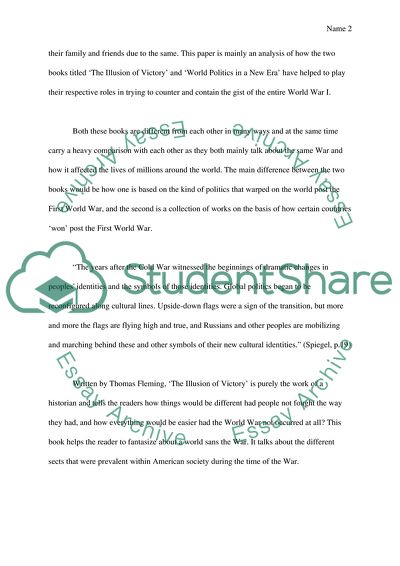Cite this document
(“World Politics in a New Era and Illusion of Victory Literature review”, n.d.)
World Politics in a New Era and Illusion of Victory Literature review. Retrieved from https://studentshare.org/history/1752734-compare-contrast-essay-about-world-war1
World Politics in a New Era and Illusion of Victory Literature review. Retrieved from https://studentshare.org/history/1752734-compare-contrast-essay-about-world-war1
(World Politics in a New Era and Illusion of Victory Literature Review)
World Politics in a New Era and Illusion of Victory Literature Review. https://studentshare.org/history/1752734-compare-contrast-essay-about-world-war1.
World Politics in a New Era and Illusion of Victory Literature Review. https://studentshare.org/history/1752734-compare-contrast-essay-about-world-war1.
“World Politics in a New Era and Illusion of Victory Literature Review”, n.d. https://studentshare.org/history/1752734-compare-contrast-essay-about-world-war1.


